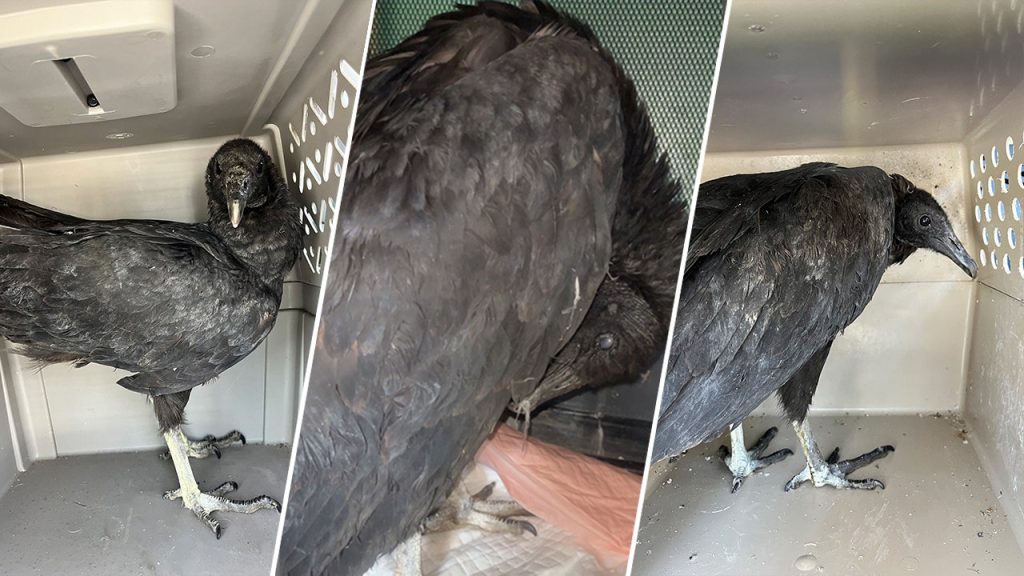In Watertown, Connecticut, two black vultures were found in a drunken state inside a dumpster just before a solar eclipse event. The vultures were rescued by Watertown Animal Control and taken to A Place Called Hope, a wildlife rehabilitation center in Killingworth. The director of the center, Christine Cummings, described the vultures as being in and out of consciousness and displaying erratic behavior. Tests revealed that the birds were simply “too drunk to fly,” most likely from consuming fermented foods in the garbage bin. While this experience was new for the center, Cummings mentioned that they have dealt with intoxicated birds in the past, such as songbirds and crows.
The unique challenge of handling intoxicated birds of prey is highlighted in this incident, as these birds have different dietary habits compared to other species. The vultures required rest, fluids, and a hearty breakfast to recover from their intoxicated state. They were released back into the wild after a couple of days and immediately regrouped with their colony. Cummings emphasized the importance of experienced individuals handling wild animals in distress, particularly predatory birds of prey, due to the potential dangers involved. It is advised to contact local animal control or relevant authorities when encountering wild animals in need of assistance, rather than attempting to handle them personally.
The incident with the intoxicated vultures serves as a reminder of the risks associated with wildlife rescue efforts and the need for caution when approaching unfamiliar animals. While it may not be illegal for birds to fly intoxicated in Connecticut, the director of A Place Called Hope jokingly mentioned that the vultures were “underage.” The center’s experience in rehabilitating various wildlife species, including birds of prey, underscores the importance of understanding the specific needs and behaviors of different animals. By following proper protocols and seeking professional assistance when necessary, the well-being of both the animals and the individuals involved can be ensured.
The story of the drunken vultures in Watertown garnered attention for its bizarre and amusing nature, offering a glimpse into the unexpected challenges faced by wildlife rehabilitation centers. The incident also shed light on the consequences of human behavior on wildlife, as the vultures’ intoxication was likely a result of consuming fermented foods thrown away in a dumpster. By promoting awareness and responsible actions towards wildlife, such incidents can serve as opportunities for education and reflection on coexisting with natural ecosystems. Ultimately, the successful rehabilitation and release of the vultures back into the wild highlights the importance of compassion and expertise in caring for and preserving our natural environment.
In conclusion, the case of the drunken vultures in Connecticut serves as a colorful anecdote that underscores the complexities of wildlife rescue and conservation efforts. By addressing the unique challenges posed by intoxicated birds of prey and emphasizing the importance of professional assistance in handling wildlife in distress, the incident provides valuable insights into the intricacies of caring for diverse animal species. Through responsible actions and a deeper understanding of the natural world, individuals can contribute to the well-being of wildlife populations and foster a harmonious relationship with the environment. As we continue to navigate the complexities of coexisting with wildlife, stories like that of the intoxicated vultures offer both entertainment and enlightenment, highlighting the resilience and adaptability of nature in the face of human-induced challenges.


